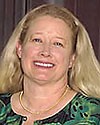Thirty-one percent of students enrolled in the Honors College actually graduated with honors last May, making it the highest honors graduation rate in years, said Patricia MacCorquodale, dean of the Honors College.
While MacCorquodale said she is encouraged by the number and hopes the trend will continue, her college will continue to offer its privileges to all of its members, regardless of whether they graduate with honors.
“”As long as students feel they’re getting something out of our program, as long as they’re benefiting, we’re satisfied,”” MacCorquodale said.
Approximately 4,000 students are enrolled in the Honors College, with 1,000 students from each class. In the past, 25 percent of Honors College students would graduate with honors.
The Honors College offers various perks to its students, such as the use of computers in Slonaker House, six-month borrowing privileges from the UA library and priority registration.
Graduating with honors requires 30 hours of honors class credit as well as completion of a senior honors thesis, according to the Honors College Web site.
MacCorquodale said academics are the heart of her program, and she hopes the rate continues to rise.
Jeff Orgera, director of the SALT Center, said he doesn’t have a problem with students taking advantage of the various opportunities the college provides, such as priority registration, even if they don’t end up graduating with honors.
Students enrolled at the SALT Center this semester lost their access to priority registration, a system that allows certain groups to sign up for their classes earlier than the rest of UA students.
“”There are lots of opportunities out there, and it’s up to students to take advantage of them,”” Orgera said.
Lauren Eversmeyer, a microbiology sophomore in the Honors College, said students should make an effort to graduate with honors.
“”They should at least attempt it,”” Eversmeyer said.
For students who want to graduate with honors, the 30 units of honors class credit can be hard to come by.
College guidelines say that 18 of those credits must come from honors-specific classes or class sections, and the remaining 12 can be completed using honors contracts with individual professors.
Honors classes are not equally available to all majors, though, which makes it difficult for students like Eversmeyer to complete enough credits to graduate with honors.
Eversmeyer said she wished she had access to more honors-specific courses and the ability to use the contract system for more of the required units so it would be easier for her to graduate.
John W. Olsen, head of the anthropology department, said he has been forced to rely on the contract system to attract honors students to some classes, because his budget is too low to accommodate honors-dedicated classes or class sections.
“”It’s a resource problem. … I’m lucky to have enough TAs to put in gen ed classes,”” Olsen said.
Olsen also said he would like to see students be able to contract more hours for honors, because it would make life easier both for his professors and their students.
MacCorquodale said the Honors College does provide more contract hours to students in those departments that are strapped for honors courses. All the students have to do is speak to an honors adviser to try to work out a solution.
“”There’s more flexibility than I think some students are aware of,”” MacCorquodale said.
Eversmeyer said she might pursue an alternative honors degree through the microbiology department if she cannot arrange to do so through the Honors College.
If she were to make that decision, Eversmeyer said she would stay on as an honors student and continue to take advantage of the college’s various perks, though not without some reservation.
“”It would be a little awkward,”” Eversmeyer said.









